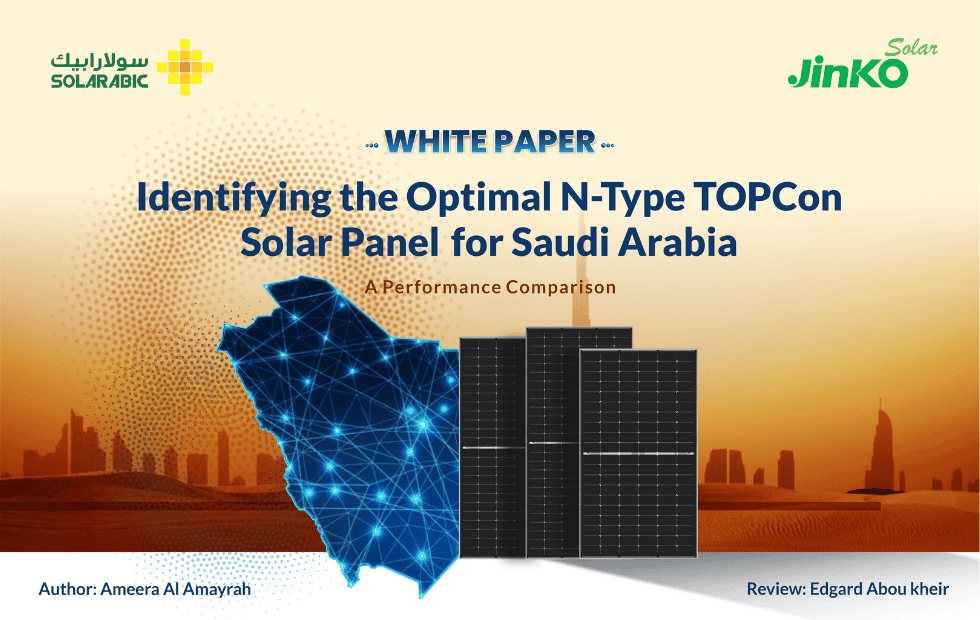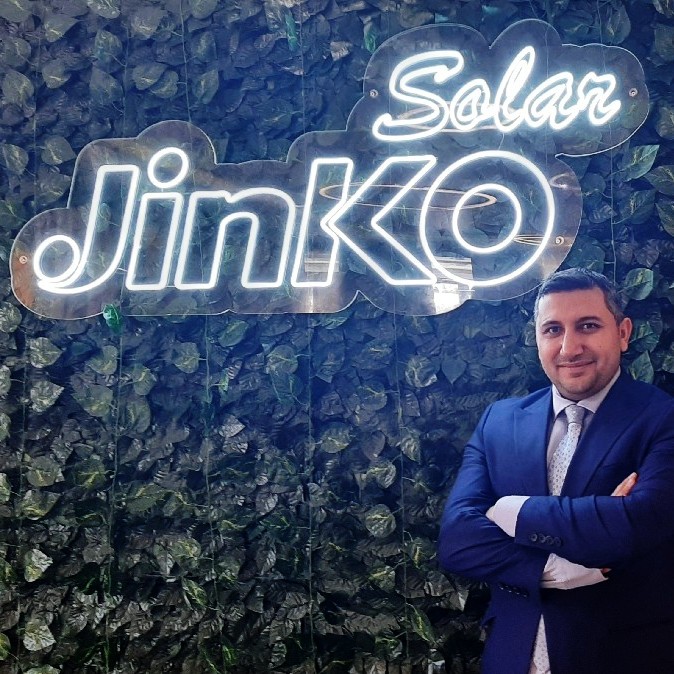Case Study
White Paper: Identifying The Optimal N-Type TOPCon Solar Panel For Saudi Arabia
Industry
Solar Energy
February 2024
Services Provided
Data Analysis and White Paper Preparation

Overview
Jinko Solar, sought an unbiased analysis to compare their panels with competitors’ in Saudi Arabia’s challenging environment. They aimed to find the best-performing technology that supports the country’s renewable energy goals and builds stakeholder trust with objective data. We analyzed three solar panel technologies and created a bilingual white paper to help Jinko engage with Saudi decision-makers and the solar industry, ensuring our findings were clear, concise, and impactful.
Challenges
Adapting the Analysis for Diverse Audiences:
While we had reliable data from third-party labs, one of the main challenges was ensuring that the analysis would be accessible to technical and non-technical stakeholders. This required a careful balance between technical rigor and clarity, particularly given the need to present the white paper in two languages (English and Arabic).
Localization and Cultural Sensitivity:
Another challenge was crafting a white paper that resonated with the specific expectations of Saudi Arabian decision-makers. This involved aligning the technical content with the local renewable energy goals and making sure that the document communicated the insights effectively to a regional audience.
Our Approach
-
Comprehensive Data Collection
We sourced reliable performance data for n-type TOPCon mono-facial, n-type TOPCon bifacial, and p-type PERC mono-facial solar panel technologies from third-party laboratories. These data sets provided key insights into how each technology performed under the challenging environmental conditions of Saudi Arabia, such as extreme heat and dust.
-
In-Depth Comparative Analysis
Using the collected data, we conducted a detailed comparison of the three technologies, focusing on critical parameters such as energy efficiency, degradation rates, and cost-performance ratio. This allowed us to objectively evaluate which technology would provide the best long-term value for large-scale solar installations in Saudi Arabia.
-
Localized Insights
We tailored our analysis to address the specific needs and goals of Saudi Arabia’s renewable energy targets. By aligning our findings with the Kingdom’s Vision 2030 initiative and the region’s push toward renewable energy adoption, we ensured that the recommendations were both relevant and actionable.
-
Bilingual White Paper Creation
The final deliverable was a professionally written white paper, available in both English and Arabic. This dual-language approach ensured the document would engage both technical and non-technical stakeholders in the region, facilitating a deeper understanding and wider adoption of the findings.
-
Collaboration with Key Stakeholders
Throughout the project, we maintained close communication with Jinko Solar and other stakeholders, ensuring that the white paper met their high standards for accuracy and relevance. Feedback from industry experts was incorporated to enhance the credibility and impact of the final analysis.
Result
1. Informed Decision-Making:
The data-driven analysis helped Jinko Solar confidently choose the optimal solar panel technology for Saudi Arabia, balancing performance and cost.
2.Broader Stakeholder Engagement:
The bilingual white paper increased accessibility and engagement among key stakeholders, including policymakers and industry professionals.
3.Strengthened Market Position:
The project enhanced Jinko Solar’s reputation as a leader in the region, showcasing its commitment to tailored, innovative solutions.

Mohammed Saady Dweik
"Solarabic’s expertise in analyzing and presenting complex data was invaluable in helping us identify the best solar panel technology for Saudi Arabia. Their bilingual white paper effectively communicated the findings to a diverse audience, making it a key asset in our engagement with local stakeholders. The professional approach and deep industry insights make them a trusted partner in our efforts to drive renewable energy adoption in the region."






